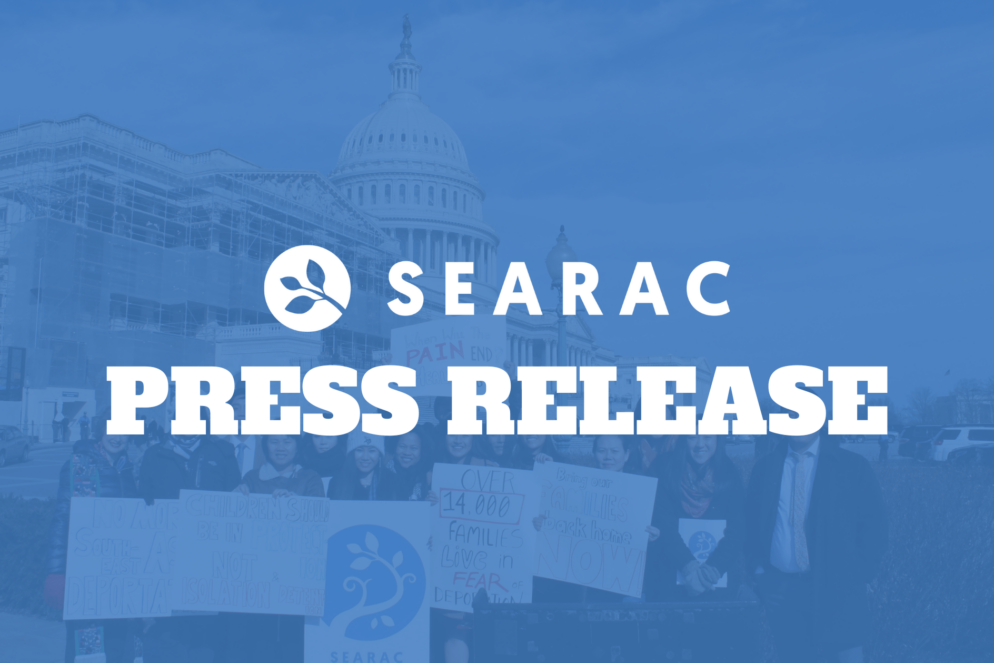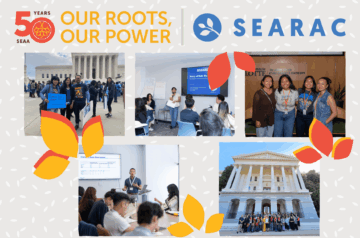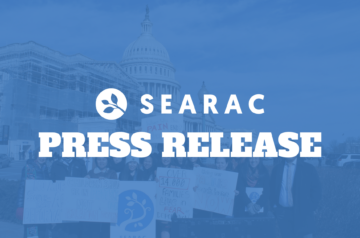For far too long, students of color and those from immigrant and refugee experiences like Southeast Asian American (SEAA) youth have experienced isolation in not seeing their communities’ histories reflected in our schools’ courses of study.
The ethnic studies movement seeks to change that. Gaining momentum nationally and in the state of California, the movement aims to integrate the narratives of historically marginalized groups to instill self-determination in our students and in our communities.
Research shows that taking ethnic studies classes can increase school attendance, grade- point average, and the number of earned school credits. However, in a recent statewide Asian American Pacific Islander (AAPI) youth assessment conducted by SEARAC and the AAPI CHARGE collaborative, survey results showed that only 39% of AAPI youth respondents said they have taken classes that taught them about their racial and ethnic history, culture, and identity. Furthermore, having more diverse ethnic studies curricula available to all students may help combat high rates of racially motivated bullying by increasing awareness of AAPI cultures and allowing students to learn about each other’s unique histories and experiences.
For these reasons, SEARAC supports California Senate Bill 895, which would require California’s Instructional Quality Commission to develop a model curriculum incorporating Cambodian, Hmong, and Vietnamese American refugee histories. The bill also directs the state board of education to work in collaboration with SEAA cultural centers, community groups, and surviving refugees located in California, to develop the curriculum by March 31, 2023.
In its original form, the bill as introduced by State Sen. Janet Nguyen (CA-34) focused solely on the Vietnamese American refugee experience. In March, SEARAC advocated for a more comprehensive SEAA refugee curriculum; however, Sen. Nguyen’s office at the time could only commit to focusing on the Vietnamese American experience. Despite its limitations, SEARAC chose to support the bill because it brought visibility to the broader SEAA refugee experience.
The bill has expanded since its introduction due to amendments made by other key legislative leaders. In May, State Sen. Ricardo Lara (CA-33) championed the inclusion of the Cambodian Genocide during Senate Appropriations. Assemblymember Joaquin Arambula (CA-31) introduced AB 2002 – Hmong history and cultural studies earlier in the year, and it was held in Assembly Appropriations in May. On Tuesday, Aug. 21, the Assembly Appropriations Committee added the Hmong community onto SB 895. If the Senate passes the bill, it will then move to Gov. Jerry Brown for final approval.
SEARAC has an ongoing commitment to advocating for mandatory ethnic studies courses in our schools, and we will continue to speak up for a more inclusive model curriculum. We are disappointed that not all SEAA ethnic groups, like Lao, Iu-Mien, and Khmu, were included in the legislative language. To address this gap and the need to tell the full story of the SEAA refugee experience, we also look forward to working in close partnership with organizations like Laotian American National Alliance (LANA) and other leaders within the Laotian American community to advocate for the inclusion of their refugee experience within the implementation process of SB 895 and California’s broader initiative to create a model ethnic studies curriculum. This advocacy will be done as SEARAC continues to engage in public hearings and public comment periods.
We encourage our SEAA community members in California and nationwide to join us in ensuring that all of our voices are represented in California’s final ethnic studies curriculum.
Together, we can fight to empower our youth to know and celebrate their historical roots and resilience as refugees.
Take Action
Ensure that all Southeast Asian American refugee experiences are well represented in California’s education systems
1. Apply to serve on the CA Ethnic Studies Curriculum Advisory Committee to assist the Instructional Quality Commission and the State Board of Education to develop California’s 2020 ethnic studies model curriculum.
2. Apply to serve on the Instructional Quality Commission, which will develop and recommend curriculum frameworks, among other activities.
3. Call or e-mail Gov. Jerry Brown to encourage him to sign and approve SB 895.
4. Engage with SEARAC’s California office by contacting California Director of Policy and Programs Nkauj Iab Yang at nkaujiab@searac.org and by attending and applying for our programming, including next year’s Leadership and Advocacy Training as well as our Equity Summit.




